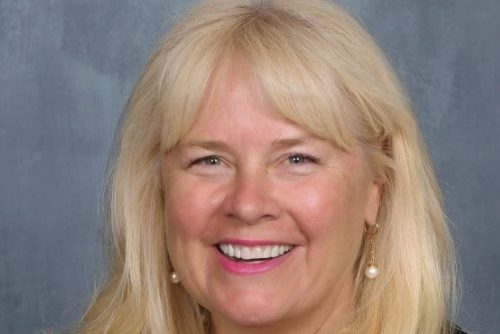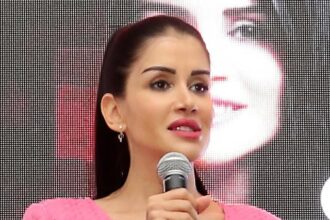
The leaders often describe to be in a place where they finally feel they have “arrived.” They are safe, with a strong network, at the top of their game. It was then that they focus on how they can raise others, their industries and their communities. Anne Marie Rogers is in that place, and only loves this phase of her trip.
With almost 30 years in Direct Travel, Rogers was recently promoted to vice president, meetings and events. He is a founding member of the Committee of Women in Leadership of the Society for Excellence in Incentive Trips (Site), a group whose mission is to advance to other women. As a member of the Executive Committee of the Site Foundation, he also works on programs for the ‘young leaders’ of organizations. At home, it is offered as a volunteer at the Children’s Hospital at the University of Minnesota.
Women leaders in meetings It is a series of skift meetings that celebrates notable leaders who are not only standing out in the meetings and events industry, but also defending inclusion and diversity at the top. We highlight women who are breaking barriers, lifting others as they rise and leaving a long -lasting empowerment legacy. Through this series, we honor the achievements and impact of these inspiring women who are making a difference in the world of meetings and events.
Skift meetings asked Rogers about his philosophies about motivating his multigenerational supply managers, technology experts and meetings planners. He also shared his trip as the leader of the site and his passion to give back.
How would you describe your leadership style?
A true leader knows when to get involved and when to be. The president of our company once told me: “Contract a great team and then leave your way.”
When I wait for your team to do great things, they will.
As a leader, what are the challenges that keep you awake at night?
Keeping good talent. There are so many days of options, and you want to make sure your people feel supported, motivated and inspired.
Everyone works differently. I have the youngest who want to work at midnight, and then people with young families who work at those schedules.
I make one against people every two weeks, and we hold our team meetings every two weeks. But it’s really just listening to: listening is very important. I am just trying to make sure they have everything they need, because they are all intelligent and excellent people who know their jobs.
In the old days, if someone thought that people felt excluded, you would simply put everyone in the conference room and talk about it. You could have those spontaneous conversations. I think it must be much more intentional these days to make sure your team feels supported and communicated.
How is your work changing at this time?
Poliazación and everything that happens at this time impacts conferences and meetings. It has been important to ensure customers that we are managing their budgets and that we are flexible, and find a way to meet all the theses that companies are looking for.
Take sustainability. It appears all the time and we are asked about our sustainability policy. For a program we had just done in Ireland, we obtained all local gifts.
You cannot do cutting and grass programs. Everyone has to be interesting, exciting and creative. It keeps you alert.
How did you finish the leaders of the Leadership Leadership Committee in leadership?
The group began as a more informal meeting of women who wanted to support each other and do projects for women. We were investigating and podcasts, and then Rhonda Brewer (vice president of sales in excellence in motivation) asked me if he would take it.
What I like most about women in leadership is that our little committee, and now we are building it to serve the largest sites community, has focused on women who raise to other women. It’s really listening to what people need and share what they need to feel thought about being vulnerable. I have discovered that the community is an incredible group of really strong and powerful women who are so safe that they are not afraid to ask or sacrifice help.
In the past, when I was 20, you would never reach people, especially your manager, to receive help. These women are so ready to share their knowledge, and that inspires me a lot.
Can you share your experiences by returning, both to the industry through the site and as a volunteer that helps children with cancer?
I never realized when I started volunteers with the sites of the young leaders program of what bidirectional tutoring is; I feel that I have learned more than they may have learned.
I really value that authentic and fresh point of view that they bring, how to ask why we are doing things in a certain way. They are not afraid of shaking it and throwing great and scary ideas.
I get out of those calls thinking: ‘These people are the light of our future. They are the best and the brightest. ‘
As for my will, my father was always very involved with the University of Minnesota. But when I got involved with their children’s hospital, you see that it makes a difference and how the children’s thesis fight for their lives. And I realized that what we do there can make a real difference. “








